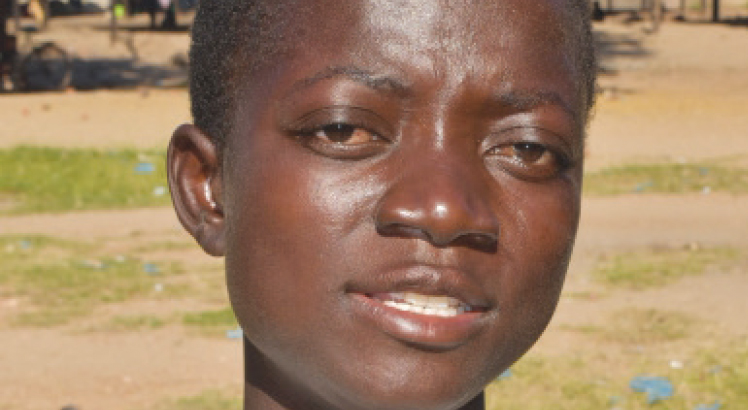Without trees, Kalonga villagers in Nsanje would have been swept to the grave on January 24 when floods caused by Tropical Storm Ana hit the area.
Ruth Wyson, 24, and her neighbours spent two days hanging on trees before they were rescued and ferried to Bangula Admarc Camp.
“From the tree, I watched surging floods wrecking my home, washing away my belongings, including livestock,” she recalls.
The three-day rainstorm triggered floods that destroyed 270 houses in Traditional Authority (T/A) Mlolo, Nsanje. This mirrors the impact of the tragedy which displaced about 190 000 people from the affected one million in 16 southern districts, according to the Department of Disaster Management Affairs (Dodma).
Wyson: There was no time to save my drugs
For years, communities near the silted confluence of the Ruo and Shire rivers have been hit by floods that often kill people, smash homes and disrupt livelihoods.
Like most survivors, Wyson and her husband escaped with only the clothes they wore on the tragic night.
While many felt relieved upon arrival at the congested camp, the mother of three grappled with fear and despair.
“The floods washed away my antiretroviral drugs. There was no time to save anything, not even the life-prolonging drugs. I just wanted to save my life and family,” says the woman living with HIV.
For two weeks, Wyson did not take the daily HIV drugs. This left her gutted and sickly, at risk of worse opportunistic disease attacks that flourish when one skips the lifelong treatment.
“I am supposed to take the drugs daily, but they were gone with floods and my health waned,” she said.
Agnes Malio of Nyakabande Village in Mozambique stayed at Bangula Camp for two weeks without taking the treatment. The unsanitary camp housed 2 185 people from 710 displaced families, including Mozambicans.
The mother of three says they clung to trees for four days until Malawian boat operators came to their rescue.
“I was pregnant with my third child when I escaped death,” she states.
The crammed camp worsened the vulnerability of survivors living with HIV to waterborne diseases and malaria.
The two mothers’ health deteriorated and their viral load rebounding within the weeks they skipped treatment. With declining immunity, opportunistic infections crept in.Scientists say disruptions in HIV treatment allows the virus to cause Aids, a disease which thrives on falling body defences to infections.
UNAids, the UN joint programme on HIV and Aids, says people living with HIV need support to overcome challenges to taking treatment regularly.
Wyson and Nyakabande are back on HIV treatment, thanks to replenishments from Nsanje District Hospital with support from the Family Planning Association of Malawi (Fpam)
The two received antiretroviral drugs which they take consistently to enjoy robust health.
Fpam and Nsanje District Health Office intensified mobile clinics to congested evacuation camps for the benefit of survivors whose drugs had been washed away by floods.
The initiative funded by International Planned Parenthood Federation provides integrated sexual and reproductive health, HIV testing and treatment, cervical cancer screening and general medical care in displaced communities.
Wyson says the intervention saved her life.
“I was dying,” she says. “But the mobile clinic allowed me to restock my drugs and get treatment for other diseases.”
Nyakabande says the emergency clinic improved access to health care that changed her life for the better.
With her one-year and six-month-old son strapped to the back, she says: “I have peace of mind knowing I have my health needs covered right here.”
Camp chairperson Stella Davie commended Fpam and the Ministry of Health for promoting the survivors’ right to health.
Yamikani Mamani, clinical officer at Nsanje District Hospital, says mobile clinics have helped them provide vital health services to survivors at risk of being left behind.
Fpam communications and advocacy officer Faith Kadzanja is excited they have contributed to the well-being of the survivors.
She says: “We are pleased to have minimised health effects of the disaster on the survivors. We are committed to helping people have constant access to health services.”
The post Sustaining HIV treatment in camps appeared first on The Nation Online.
 Moni Malawi
Moni Malawi 
